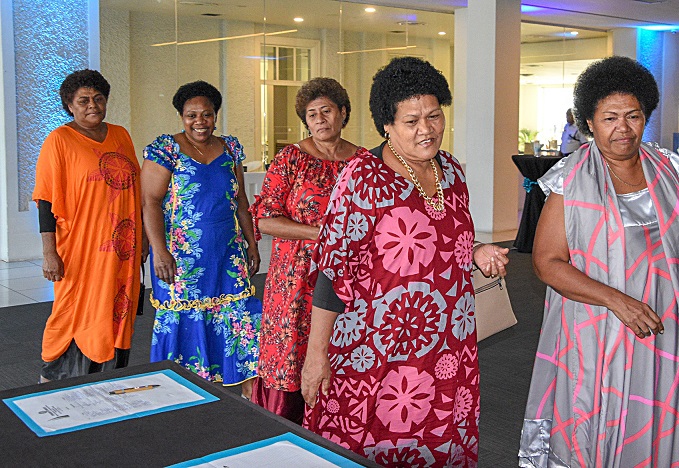The Fiji Country Gender Assessment indicates a significant 81 per cent of Fijians agree women are underrepresented in the nation, says Minister for Women, Children and Social Protection Lynda Tabuya.
She told the Speaker’s Debate in Suva this week that according to the UN SDG indicator dashboard, women hold approximately 25.6 per cent of seats in national parliaments globally, while Fiji lags behind at a mere 10 per cent.
“A remarkable 72 per cent of Fijians believe it would be better for our country if there were more women in leadership roles and actively contributing to decision-making processes across the spectrum of politics and governance,” Ms Tabuya said.
“Yet we’ve got to confront the perplexing reality.
“Why do the corridors of power in Fiji across all echelons remain predominantly dominated by men?
“Furthermore, how do we explain the discrepancy between the approximately 72 per cent of the population mentioned as supportive of women’s leadership, and the fact that women received only 8 per cent of the votes in the 2022 General Elections despite there being 54 women candidates and only six got elected.”
Ms Tabuya said the overall voter turnout for women in the 2022 elections exceeded that of men.
“As a female politician, I faced my fair share of challenges navigating the male-dominated corridors of power.”
“I’ve also witnessed firsthand the effects of electoral systems, financial constraints for women candidates to access resources, and most importantly, the double standard and prevalence of hate speech and online harassment targeting women. However, to me, and I believe, to all of us, it all boils down to one central issue — patriarchy.”
“Indeed, the root of low representation of women in leadership positions lies deep within us as individuals and collectively as a society entrenched in patriarchal norms that dictate gender roles, discriminatory norms and expectations.”
Ms Tabuya said these deeply ingrained expectations and cultural norms not only reinforced gender disparities, but also created significant barriers to Fijian women’s meaningful participation in leadership roles.
“From a young age we are directed towards nurturing and supportive roles, while boys steer towards leadership and assertiveness.
“We often dictate what our daughters should wear, how they should speak, and even their demeanor, while neglecting to educate our sons about respectful relationships and equality.
“This cultural conditioning begins in childhood and shapes the paths we follow as we grow, influencing our behaviours and leadership opportunities, in various settings such as our homes, schools, workplaces, places of worship and communal spaces.”


